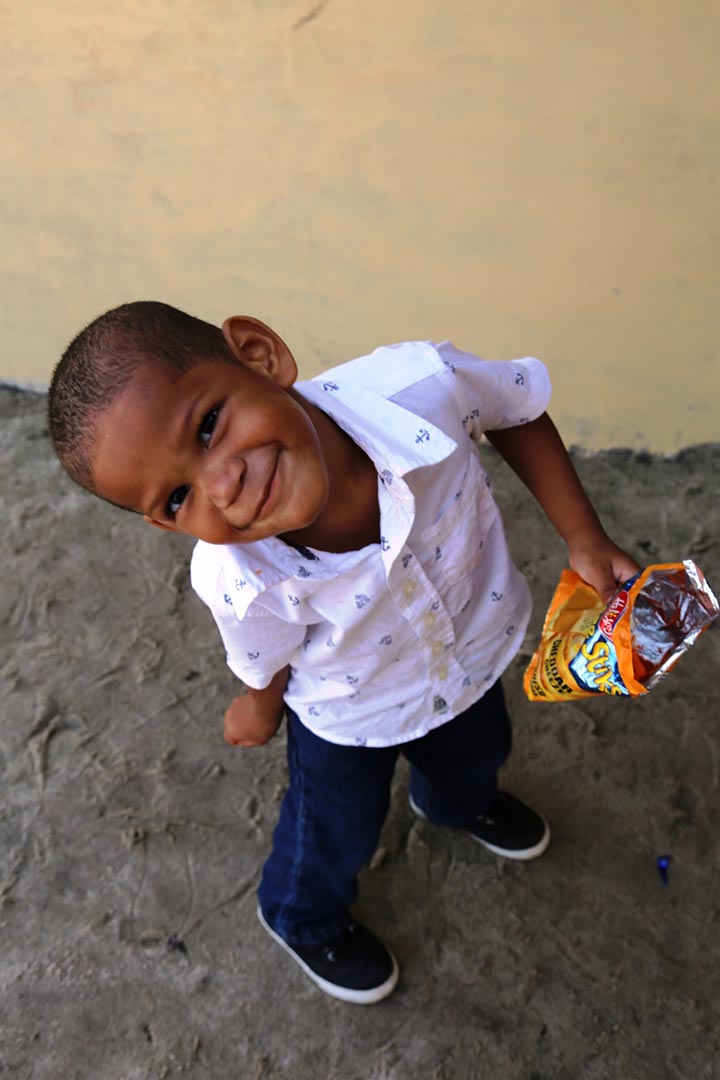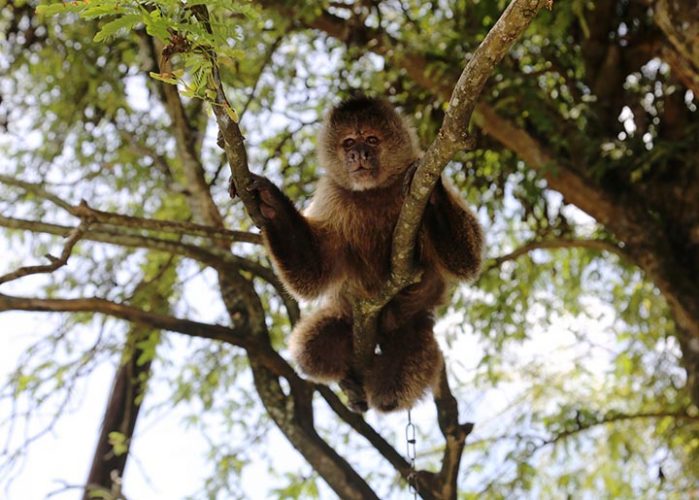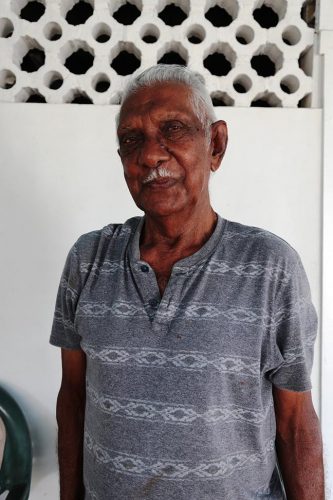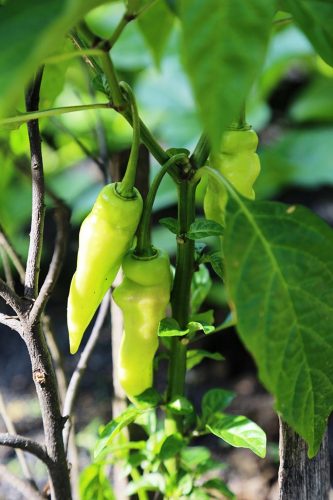Story and photos
Richmond Village on the Essequibo Coast is 40 minutes away from Anna Regina and approximately 37 kilometres from the Supenaam jetty. Richmond is a relatively large two-phase village with the first part being the village proper and the second section, the Richmond Housing Scheme. I met with persons from the first half of Richmond.
While gazing and taking it all in, a monkey swinging from a tree caught my attention as it climbed then hurried down the tree to swing again; at one point, it stopped to peer down at me between the branches.
Nankishore Maniram answered my call and struggled downstairs slowed by a foot injury. Now 67 years old he spends his days at home since he’s a pensioner but some years ago, he moved easily around his yard where he worked as a mechanic and auto repairman.
He was born in Richmond and in those days, he stated, the village thrived more than it does today; work was always there and more people lived and toiled the lands. Since those days, people have migrated and rice farming has declined. Many persons have branched off into other areas of work including welding, auto repairs and information technology.
He himself, toiled in the backdams beside his father cleaning the field when it was time to plant and tagging along when it was time for harvesting; he recalls having to use the grass knife.
Living in Richmond, Maniram said, is convenient for him and his family as it is close to the town which has a variety of businesses, commercial banks and the police station. The village itself has a mandir, a mosque and two churches.
“It’s nice to live here… everybody live nicely together,” Maniram said.
However, he needs to see improvements regarding the weed-filled drains. “When I was a boy they cleaned the drains with draglines. Back then, I could never imagine it like it is today. The people back then could have used it for washing and bathing but not today,” he lamented.
Laughter and voices drew my attention to little groups chatting outside of the People’s Restoration Ministry Inc, the morning service had just finished. Mark McLean was among them.
McLean, who was born in Mahaica moved to Richmond with his mother who was originally from village. He was eight years old when they moved and recalls anticipating the adventure even before his arrival. The first thing he remembers about those days was the loam road that stretched for miles and was a mess whenever it rained. “As a little boy going to school, when a vehicle coming, you had to run to catch the neighbour’s bridge else you were splashed with the mud. They hadn’t many vehicles then but the little that they had were these huge yellow buses and a few cars. The main mode of transportation was donkey and horse cart,” he said.
The man who is a part of the town council and also a member of the finance committee of the Regional Democratic Council said the village was once under the Three Friends Village Council but is today under the Anna Regina Town Council. This part of the village he noted has approximately 300 persons, but in the housing scheme there is triple this number.
As a boy he attended Anna Regina Primary and Anna Regina Multilateral. Afternoons after school and weekends were filled with adventure as he often accompanied his neighbours into the backdams. “We used to catch fish many times; sometimes they throwing a fish for you then next they say ‘catch this’ and before you know it, is a snake coming. I even learn how to work along with them. I would see them holding the bag to catch the paddy and I holding too. That’s when I’d learn there was a wrong and right way of holding the bag. I stand up downwind and holding the bag for the paddy and all the pickle catch me and I started scratching; I got it right the next time,” he added.
“Another thing about those days is the people… so different. I would go to your house and go through your pot and you’d come at mine and do the same thing; we lived like family no matter the race. You see when we going for a swim, it ain’t got boy or girl or colour, everybody jump in. That was the Richmond I knew.”
“Moonlight neva pass,” said Megan Christian who had been sitting nearby listening intently. She explained that there was never a moonlit night that they didn’t get together and play games until they ran out of games or grew weary of them. McLean and Christian then took turns reminiscing and listing some of the games they played decades ago: sal pass, cheers, ketcha, send for a leaf, Chinese skipping, hopscotch, gam and buck-top.
McLean said the advantages of living in Richmond include its proximity to the administrative centre in Anna Regina, the fresh sea breeze coming in from the Atlantic and the peacefulness of his neighbourhood.
Yet he believes that more can be done for the area and pointed out that the drains need proper cleaning. The drain next door the church, he said, houses reptiles and just recently he saw a caiman sunning on the church lawn before returning to the drain. He did note however that the cleaning of the internal drains has begun.
In a yard decorated wildly and beautifully with flowers, lives one of the oldest residents of Richmond, Ramsundar (his only name). He is 85 years old and still works very hard; he credits the life he had as a boy with giving him the strength and stamina he now has.
Ramsundar was the third of four sons his parents had and the only one who is still alive. The four brothers grew up without their parents who died after falling ill. At the time his parents died, he was six years old and the last child was just a toddler. His oldest brother, then 15 years old, undertook the task of raising his younger brothers on his own as they did not have any relatives around. They often went without food, especially on Sundays, and because of this the youngest brother was constantly unwell. Ramsundar explained that they tried their best as older brothers to give him the best of care they possibly could.
Ramsundar said he continued school until the second grade when they could no longer send him and he had to drop out; he was the only brother to drop out of school. Some of the odd jobs they took on included weeding the yards for neighbours. Then when the oldest brother was in his 40s, he managed to buy half an acre of land, which Ramsunder and his other brothers worked along on.
“We struggled a lot to grow. Sometimes we go to the backdam and pick mangoes and eat or feel for two fish and roast them or roast a wild duck or wild boar and drink black water,” he recalled.
In 1954, he married and his wife bore him seven children. His wife and one of his children have since died.
“Richmond is a nice village. People live as family here. This is probably the nicest village in Guyana; a girl can walk the road any hour of the night,” he said.
However comparing today to yesteryear, Ramsundar said the children are very different adding that years ago, if a stranger asked a child to buy a cigarette or anything else, the child would have willingly obeyed and had the child been rude or disobedient, the stranger putting lashes on the child was not considered a bad thing; disrespect for elders was frowned on and so that child would expect to be whipped even more when they arrived home. Today, he noted, parents cannot whip their own children but can be locked up for doing so instead.
Ramsundar, who had left his work in the kitchen garden at the time I showed up, said he had planted: boulanger, ochro, tomato, poi calaloo, thyme, celery, shallot, cassava, eddo, sweet potatoes, katahar, breadfruit, pepper, banana, plantain, mango, golden apple, sapodilla, paw-paw and five fingers, among other crops. He has also planted all the flowers in his yard.
Asked what would happen if someone told him he should rest instead of working so hard, he said, “I think that person want to kill me. For that same reason I had to leave from my children in America and come back. Here I get fresh food and fresh air and I can work as I want. I feel healthy this way.”
He added also for the people of today’s benefit, “I want to see people develop themselves educationally and work wise and don’t let the people up there bother you. Government don’t bother me. If I want something for tomorrow, then I got to provide for tomorrow. That’s why I plant; some things not always going to be in season but if every day you plant, you always have something to reap.”













